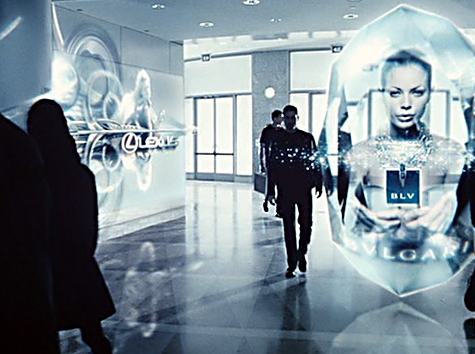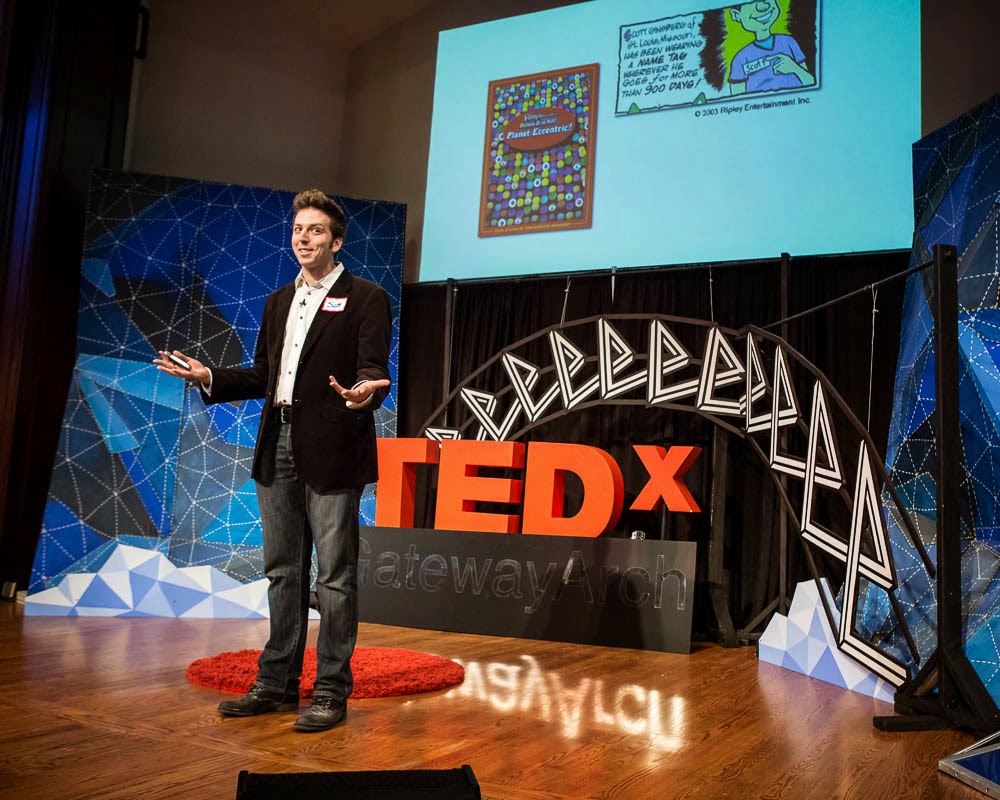

All creativity begins with the moment of conception.
That little piece of kindling that gets the fire going. That initial source of inspiration that takes on a life of its own. That single note from which the entire symphony grows. That single spark of life that signals an idea’s movement value, almost screaming to us, something wants to be built here.
Based on my books in The Prolific Series, I’m going to be deconstructing my favorite moments of conception from popular movies. Each post will contain a video clip from a different film, along with a series of lessons we can learn from the characters.
Today’s clip comes from the advertising scene from Minority Report:
There’s no plasticity of the self. I have zero sense of direction. Even with the
assistance of the satellite navigation system in my phone, it’s still hard for
me to find my way around sometimes. And I’m okay with that. I’ve long since
made peace with my directional incompetence. Besides, what’s so bad about
getting lost? Is there any shame in having no sense of direction? I love
getting lost. It’s essential part of the human experience. It’s how we learn to
trust ourselves. It’s how we make room for chance encounters. And it’s how we
expose ourselves to things outside of our interest. What’s sad is, technology
is slowly obfuscating that experience. Now that every aspect of our world is
hyperpersonlized, ubertargeted and supernichefied, getting lost is quietly
becoming a thing of the past. Pariser named this phenomenon thefilter
bubble, whereby web algorithms
selectively guess what information a user would like to see based on
information about them. Like my friend who does a lot of online dating on her
cell phone. It’s amazing. She can adjust her algorithms to only seek out
divorced dark skinned men over forty who love riding motorcycles and eating
organic grass fed beef who live within a fifteen mile radius of her home. Which
sounds ideal, and it is. But the problem with idealism is, we don’t experience
the virtue of being exposed to things outside of our interest. There’s no
plasticity of the self. Pariser’s research actually showed that without practicing
that kind of categorical openness, it’s harder for luck and ingenuity to find
us. Wow. I can’t imagine living in a world where we only got what we wanted. Are you isolating yourself into your own
cultural and ideological bubbles?
True life takes place in opening.Pariser’sbookexplained that personalization filters serve up a
kind of invisible autopropaganda, indoctrinating us with our own ideas,
amplifying our desire for things that are familiar and leaving us oblivious to
the dangers lurking in the dark territory of the unknown. Yikes. That reads like a dystopian fiction novel. Like the internet
has some hidden agenda to keep humanity small, scared, stupid and dreamless,
incapable of critical thinking. Then again, are we really that far away from
such a reality? Not anymore. And that’s what makes this scene so prophetic.
Spielberg’s movie predicted the
implementation of biometric recognition in customized advertising. That’s
completely terrifying. I know it sounds paranoid, but what’s worse,
thinking you’re being paranoid, or knowing that you should be? The point is, we have an obligation,
as citizens, to maintain and develop our capacity for openness. To keep
ourselves from becoming like the characters in this movie. In fact, the
prevailingtheorieson personality found that openness to experience was
by far the most salient characteristic of high creativity and intelligence.
People with high openness were more likely to have high active imaginations,
aesthetic sensitivity, attentiveness to inner feelings, preference for variety and
intellectual curiosity. Sounds better than having a hologram ask me how those
new boot cut jeans are fitting.
Remember, true life takes place in opening, not closing. Are you still protecting yourself from
information that disagrees from your viewpoints?
Your memories aren’t invited. Rehashing
the same old stories with the same old people is an enjoyable and comforting
and nostalgic activity. And why shouldn’t it be? Roles are clearly defined and the
status quo is easily preserved. Everyone is happy, and nobody has to change. However,
recyclingold memories and pretending
that they’re fresh gets very old,very quickly. It
feels like you’re trapped in an infinite regression. A dull blanket of
sameness. A snake eating its own tail. And before you know it, every
interaction becomes a cannibalistic photocopy of the one before. Every person
remains frozen in the position they met each other in. And nobody grows. Blech. But it doesn’t have to be this
way. It is possible to evolve the conversation. All it takes is one courageous
person who dares to raise the needle on the record and say, guys,all we ever do is talk about old stories. Let’s go create
new stories. The point is, building momentum doesn’t require anything complex,
simply a moment that adds energy to the system. When was the last time you did something for the first time?
LET ME ASK YA THIS…
What did you learn from this movie clip?
LET ME SUGGEST THIS…
For a copy of the list called, “11 Ways to Out-Market the Competition,” send an email to me, and you win the list for free!
* * * *
Scott Ginsberg
That Guy with the Nametag
Author. Speaker. Strategist. Inventor. Filmmaker. Publisher. Songwriter.
scott@hellomynameisscott.com

Never the same speech twice. Customized for your audience. Impossible to walk away uninspired.
Now booking for 2015-2016.
Email to inquire about fees and availability. Watch clips of The Nametag Guy in action here!
